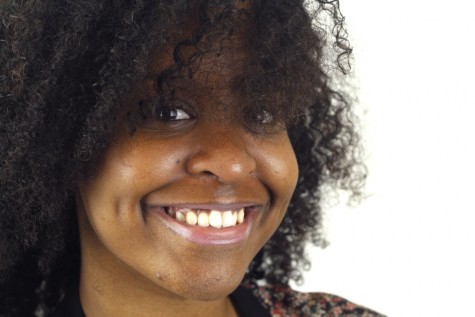Panel to clarify Middle Eastern beliefs
April 16, 2015
In effort to bring awareness to the diverse cultures at Eastern, the Asian-American Heritage committee presented a panel intertwining Middle Easterners’ beliefs Thursday afternoon.
Jinhee Lee, a history professor, said bringing in another culture was a way to start conversation about the Middle Eastern students’ and faculty members’ heritage and beliefs.
“A large portion of the Middle East is a portion of west Asia, and Asian studies wanted to include west Asian as part of the curriculum and we also don’t have a separate Middle Eastern studies program,” Lee said.
Lee said even though the some view the Middle East as having a strict culture, many other cultures are strict in different ways.
“There are a lot of shared aspects of human life in human societies; for example, in Korea men and women are segregated because of it being conservative there,” Lee said. “That element can be found in a number of cultures, but when it is viewed in the Islamic culture people immediately say it’s because of their religion, but nothing is genetically determined.”
Lee said if individuals took the time to befriend others their perspectives of the overall people in a given culture are bound to change.
“People tend to view this culture as if it’s unique; the misconception and strong desire to differentiate is partially because of the lack of knowledge and understanding,” Lee said. “Once you know a Muslim friend, you start feeling the common aspect of human life because now you’re connected.”
Ahmed Abou-Zaid, an economics professor, said Islam has been misunderstood because of its portrayal in the media. He said majority of the misunderstandings stem from people’s thoughts of a strict religion, when most religions of the world have some common values.
Abou-Zaid said the problems did not evolve from religion; they started from poor conditions of people who wanted to fight for a better life.
“It’s pretty miserable in parts of the Middle East; some children have no water, no food, or families,” Abou-Zaid said. “When those children grow up what do you expect them to do?”
Abou-Zaid also clarified some of the thoughts on the role of Middle Eastern women.
“Saudi women are pretty pampered. They don’t drive; they have drivers and you might think they are deprived of one thing, but they are provided with another,” Abou-Zaid said. “Saudi women are treated as queens in their homes.”
Mai Alghamdi, an economics graduate student, said open discussions illuminate people’s beliefs on the Middle East.
“Women’s rights are a problem all over the world, if we need anything, we need more rights than driving, some women still are not getting education and it’s not just in Saudi Arabia, but everywhere,” Alghamdi said.
Hasan Mavi, a kinesiology and sports studies professor, said the news portrayed in the media does not represent Middle Eastern people.
“I understand it if people are scared, or if they have negative feelings because they are bombarded with harsh ideas about the cultures,” Mavi said.
Mavi said upon coming to the United States he found himself engulfed with his religion. He said when someone comes to the states, their belief and trust in God strengthens. He said he followed his religion closely, but used to skip prayers. However, now he is consistent.
Lee said in this world there is more to a person than basing ideologies on their culture or ethnic background.
“We need to acknowledge that we do have university members who came from the Middle East; it’s not just Osama bin Laden or ISIS, but we have students, faculty, friends and community members who are human beings that are just ordinary people,” Lee said.
T’Nerra Butler can be reached at 581-2812 or [email protected].



















































